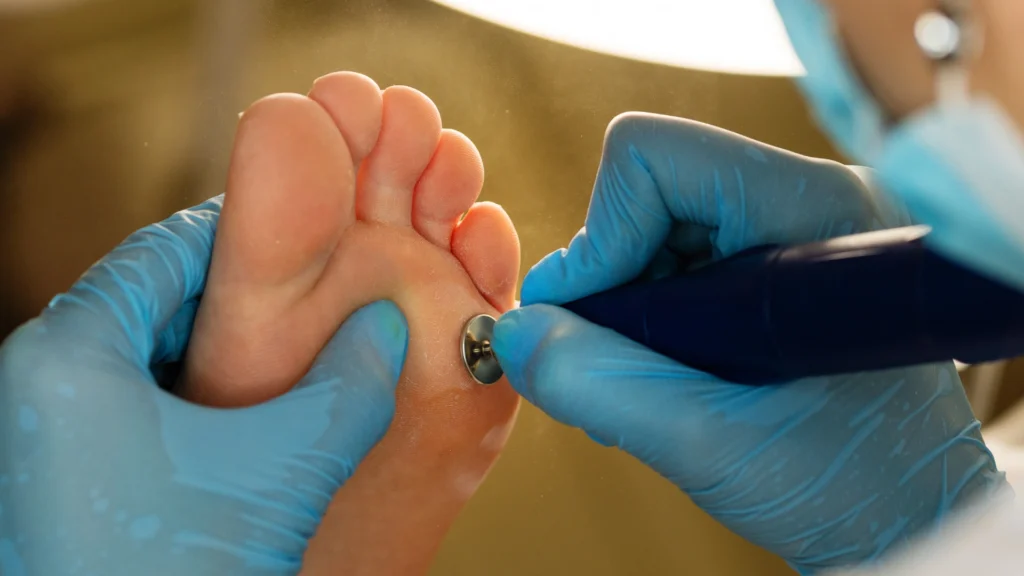
Neuropathy is a condition affecting the nerves that can drastically alter a person’s quality of life. From tingling and numbness to severe pain and muscle weakness, its symptoms can disrupt daily activities, mobility, and even emotional well-being. Traditional treatments often rely on medication to manage symptoms, but growing numbers of individuals are turning to holistic and natural remedies to address the root causes and find relief.
The year 2025 marks a turning point in holistic neuropathy care. New advancements in natural therapies, informed by research and technological innovation, offer more options than ever. People are rediscovering the benefits of ancient practices like yoga and acupuncture while modern science validates their effectiveness. The global rise in interest in integrative medicine highlights the potential of combining holistic approaches with medical science to create sustainable solutions.
In this article, we will provide you with actionable insights into holistic treatments for neuropathy, with a special focus on natural remedies for legs and feet. Whether you’re looking for dietary changes, supplements, or mind-body practices, the information here is designed to guide you toward relief and recovery.
What is Neuropathy? Symptoms and Diagnosis
Neuropathy is a condition that occurs when the nerves in the body are damaged, leading to disruptions in how they communicate with the brain and spinal cord. Various factors, including diabetes, infections, trauma, exposure to toxins, or underlying conditions like autoimmune disorders, can cause this damage. Depending on its type and severity, neuropathy can affect sensory nerves, motor nerves, or autonomic nerves.
Neuropathy symptoms often vary based on the nerves affected, but some common signs include:
- Tingling or burning sensations: A pins-and-needles feeling that can occur in the hands, feet, or other extremities.
- Numbness: A loss of sensation that may make it difficult to detect changes in temperature or texture.
- Chronic pain: Persistent discomfort, often described as sharp, shooting, or throbbing.
- Muscle weakness: Difficulty gripping, walking, or performing physical tasks.
- Impaired coordination: A loss of balance, which increases the risk of falls.
These symptoms can progress over time, significantly impacting daily life and emotional well-being.
Diagnostic Methods
Diagnosing neuropathy involves a comprehensive approach:
- Physical Exams: Doctors evaluate muscle strength, reflexes, and sensitivity to detect abnormalities in nerve function.
- Nerve Conduction Studies (NCS): This test measures the speed at which electrical signals travel through nerves, helping pinpoint areas of damage.
- Blood Tests: These tests identify underlying conditions such as diabetes, vitamin deficiencies, or thyroid dysfunction that could contribute to nerve damage.
- Imaging: MRIs or CT scans may assess nerve compression or damage.
- Skin or Nerve Biopsies: In some cases, a small tissue sample is taken to examine nerve health more closely.
The Holistic Approach to Neuropathy
A holistic approach to neuropathy focuses on treating the whole person rather than just addressing symptoms. It integrates physical, emotional, and lifestyle factors to create a balanced, sustainable path to healing. Unlike conventional treatments that may rely heavily on medications to mask pain, holistic strategies aim to enhance the body’s natural ability to repair itself.
This can include adopting home remedies for neuropathy, such as dietary changes to reduce inflammation, practicing physical therapies like yoga and massage to improve circulation and nerve function, and using mind-body techniques such as meditation to manage stress, often exacerbating neuropathy symptoms. Holistic care also emphasizes the importance of identifying and addressing the root cause of neuropathy—whether it’s diabetes, nutrient deficiencies, or chronic stress—ensuring a more comprehensive and effective treatment plan.
Natural Remedies for Neuropathy in 2025: Legs and Feet

In 2025, natural remedies for neuropathy have evolved to focus on targeted solutions for affected areas like the legs and feet, where symptoms like numbness, tingling, and pain are most prevalent. With advancements in research and growing interest in non-invasive treatments, holistic methods have gained credibility for improving nerve health, circulation, and overall function without the risks of dependency or severe side effects.
For those exploring natural remedies for neuropathy, these solutions combine ancient practices with modern insights, offering accessible and sustainable options for relief.
Dietary Changes
What you eat plays a significant role in nerve health. A nutrient-rich diet can help reduce inflammation, repair damaged nerves, and restore overall nerve function.
Key recommendations include increasing the intake of:
- Omega-3 fatty acids are found in fish, flaxseeds, and walnuts, which support nerve repair.
- B vitamins, especially B12, are essential for nerve function and regeneration. Eggs, fortified cereals, and leafy greens are excellent sources.
- Antioxidants, such as Vitamin E, found in almonds and spinach, and Vitamin C, abundant in citrus fruits, combat oxidative stress on nerves.
Additionally, reducing sugar intake is crucial for individuals with diabetic neuropathy to manage blood glucose levels and prevent further nerve damage.
Herbal and Natural Supplements
Certain herbs and natural remedies for nerve pain have shown promise in reducing neuropathy symptoms and promoting nerve health:
- Alpha-lipoic acid: Known for its anti-inflammatory properties, it can alleviate pain and improve nerve conduction.
- Turmeric: Contains curcumin, which has powerful anti-inflammatory and antioxidant effects.
- Evening primrose oil: Rich in gamma-linolenic acid (GLA), it may help reduce pain and improve nerve function.
- Ginkgo biloba: Improves circulation and may aid in nerve repair.
Physical Therapies
Physical therapies play an integral role in the natural treatment of peripheral neuropathy. They enhance circulation, reduce inflammation, and promote nerve regeneration:
- Yoga and Tai Chi: These gentle exercises improve circulation, flexibility, and stress relief, all of which benefit nerve health.
- Massage Therapy: Regular massages stimulate blood flow to the affected areas, enhancing oxygen and nutrient delivery to the nerves.
- Acupuncture: Evidence suggests that acupuncture can alleviate pain and improve nerve function by stimulating specific points in the body to release healing chemicals.
Mind-Body Practices
Managing stress is essential in treating neuropathy, as chronic stress can worsen symptoms. Mind-body practices like meditation, guided imagery, and deep breathing exercises help calm the nervous system, improving its ability to repair and function effectively. These practices also promote emotional resilience, which is crucial for coping with chronic conditions.
Lifestyle Modifications
Simple but impactful lifestyle changes can make a difference in managing neuropathy:
- Regular Exercise: Walking and swimming promote circulation and maintain nerve health.
- Smoking Cessation: Smoking restricts blood flow, worsening nerve damage.
- Comfortable Footwear: Properly fitting shoes can prevent additional strain or injury to already sensitive areas.
When practiced consistently, these remedies can significantly reduce the severity of neuropathy symptoms and improve the overall health of the legs and feet.
Top Foods that Heal Nerve Damage
Certain foods support nerve health and aid in healing nerve damage, primarily by reducing inflammation, providing essential nutrients, and promoting regeneration. Leafy greens like spinach and kale are rich in antioxidants and Vitamin B-complex, particularly B12, which is crucial for nerve repair and function. Fatty fish such as salmon and mackerel provide omega-3 fatty acids, which have anti-inflammatory properties and support the rebuilding of nerve tissues.
Nuts and seeds like almonds, walnuts, and flaxseeds are packed with Vitamin E and magnesium, which protect nerves from oxidative stress and improve nerve signal transmission. Citrus fruits and berries, high in Vitamin C, boost collagen production, which is essential for maintaining nerve coverings’ integrity. Whole grains and legumes, rich in folate and zinc, help maintain healthy nerve cells. Incorporating these foods into your diet can create a foundation for better nerve health and potentially reverse damage.
Innovations in Holistic Neuropathy Treatment
By 2025, innovations in holistic neuropathy treatment will blend ancient practices with cutting-edge research to provide effective and noninvasive options. Emerging therapies like laser acupuncture combine traditional acupuncture principles with low-level laser technology, stimulating nerve repair without needles. Bioelectric therapy, which uses gentle electrical signals to improve nerve conductivity and reduce pain, has become a natural alternative to pharmaceuticals.
Advances in nutritional genomics now allow personalized dietary plans based on genetic profiles, optimizing the intake of nerve-supportive nutrients. Additionally, CBD-based treatments are being refined to offer targeted relief for neuropathy symptoms without psychoactive effects. These innovations mark a significant shift toward integrating science-backed natural methods for nerve health, making treatments more accessible and effective.
Holistic Medicine as a Solution
Holistic medicine offers a cost-effective alternative for many individuals with neuropathy. While the holistic medicine cost may initially seem higher due to the integration of various therapies and supplements, it often proves more sustainable and less expensive over time than ongoing pharmaceutical treatments.
When to Seek Professional Help
While natural remedies can significantly improve neuropathy symptoms, certain signs indicate the need for professional intervention. Persistent or worsening symptoms such as severe pain, muscle weakness, or loss of sensation in the feet and legs may require advanced diagnostic tests and tailored treatment plans.

Additionally, sudden changes, like the inability to move or balance properly, could indicate nerve damage requiring urgent care. Seeking professional help ensures that underlying conditions, such as diabetes or autoimmune disorders, are adequately managed alongside holistic approaches. A collaborative strategy combining natural remedies and medical oversight offers the best chance for recovery.
Can Essential Oils Help Relieve Neuropathy Pain?
Essential oils can temporarily relieve neuropathy pain with their anti-inflammatory and soothing properties. Oils like peppermint containing menthol create a cooling effect that helps alleviate burning sensations. Lavender oil, known for its calming properties, can reduce nerve pain and promote relaxation.
Eucalyptus oil is another option, as it boosts circulation and reduces inflammation in affected areas. Diluting these oils with a carrier oil like coconut or olive oil and gently massaging them into the skin can enhance their effectiveness. While essential oils are not a cure, they can complement other treatments by providing relief and comfort.
How Does Exercise Impact Neuropathic Symptoms?
Regular exercise is critical in managing neuropathy by improving circulation, strengthening muscles, and reducing inflammation. Low-impact activities like walking, swimming, or cycling help deliver oxygen and nutrients to damaged nerves, promoting repair and reducing symptoms like tingling and numbness.
Stretching exercises, such as yoga or pilates, enhance flexibility and prevent stiffness in affected areas. Moreover, exercise stimulates the release of endorphins, which act as natural painkillers and improve overall well-being. Consistency is key; incorporating exercise into a daily routine can significantly reduce neuropathic symptoms.
Are Herbal Supplements Safe for Managing Neuropathy?
Herbal supplements are generally safe when recommended, but they should be cautiously approached. Supplements like alpha-lipoic acid, turmeric, and evening primrose oil have effectively reduced neuropathy symptoms and supported nerve health. However, potential interactions with medications or underlying conditions should be considered.
For example, high doses of turmeric might thin the blood, posing a risk for those on anticoagulants. To avoid adverse effects, it is essential to opt for high-quality supplements from trusted sources and adhere to the recommended dosages.
What Are the Risks of Using Home Remedies?
While home remedies offer natural relief for neuropathy symptoms, there are some risks to be mindful of. Misusing remedies like herbal supplements or essential oils can lead to allergic reactions, skin irritation, or interactions with medications. Over-reliance on home remedies without addressing the underlying cause of neuropathy may delay necessary medical interventions, potentially worsening the condition. Furthermore, certain DIY treatments, like excessive use of heating pads, can cause burns or skin damage in areas with reduced sensation. Balancing home remedies with proper medical advice ensures safe and effective management.
What Home Remedies Can Help With Diabetic Neuropathy?
For diabetic neuropathy, home remedies focus on managing blood sugar levels and alleviating symptoms. Dietary adjustments, such as consuming low-glycemic foods like whole grains, vegetables, and lean proteins, can stabilize glucose levels and prevent further nerve damage. Warm foot baths improve circulation and soothe pain, while regular foot massages enhance blood flow and nerve function. Additionally, incorporating supplements like B-complex vitamins can help repair damaged nerves. These remedies, when combined with proper diabetes management, can significantly reduce the impact of neuropathy.
Are There Natural Treatments for Peripheral Neuropathy?
Peripheral neuropathy can benefit from several natural treatments to improve nerve health and reduce pain. When applied to affected areas, capsaicin cream, derived from chili peppers, can reduce pain signals. Acupuncture has shown promise in stimulating nerves and improving their function. Physical therapy focuses on exercises that restore balance, flexibility, and strength. Incorporating anti-inflammatory foods like fish, nuts, and berries into the diet also aids in nerve regeneration. Together, these treatments create a holistic plan to manage peripheral neuropathy effectively.
The Bottom Line
Neuropathy can be a challenging condition, but holistic and natural approaches offer hope for long-term relief and healing. From dietary changes and herbal supplements to advanced innovations and mind-body practices, these treatments address both the symptoms and root causes of neuropathy. By adopting a comprehensive plan tailored to individual needs, many people have found effective ways to manage their condition and improve their quality of life. Holistic remedies prioritize nerve health and empower individuals to take charge of their well-being sustainably and meaningfully.









